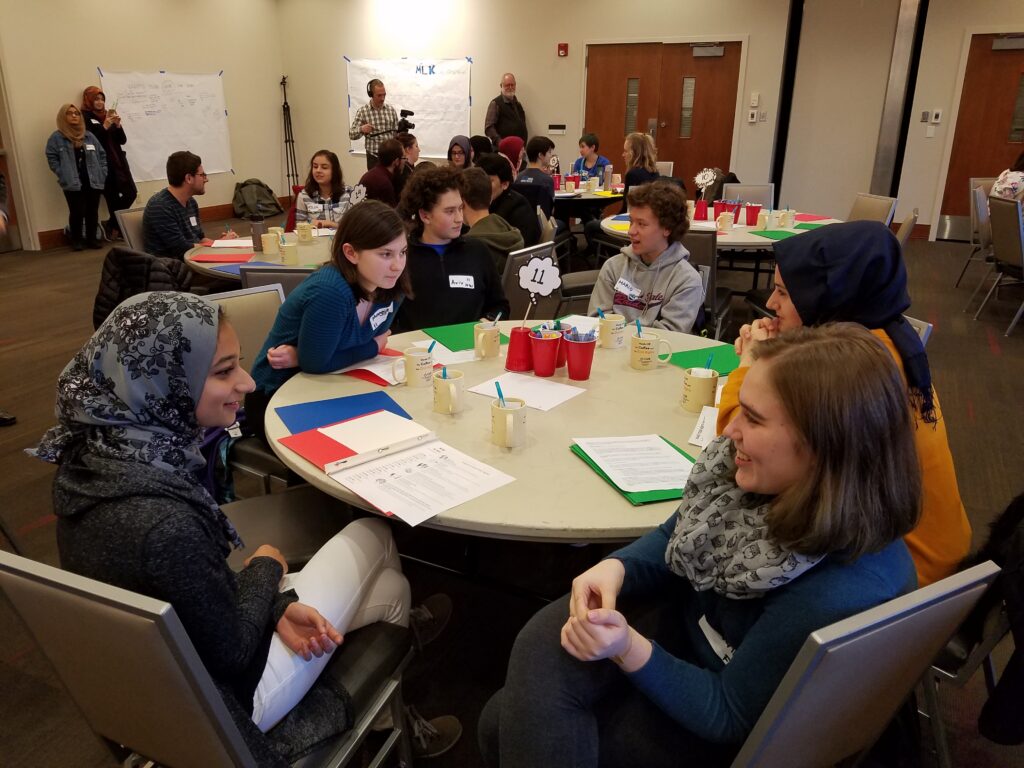
Over the past few months, I have had the opportunity to catch up with some alumni of past interfaith programs I have directed. It is such a joy to see these young people flourishing in the world, and I am continually struck by the deep wisdom that they continue to bring to our shared world. I am grateful to continue learning from them as we prepare to launch PTU’s youth program this fall.
I recently had the chance to catch up with one young woman, a senior in college, who spoke about the challenges of building intercultural and interfaith relationships amidst the current realities of our world.
She shared the hope that she feels when she engages in meaningful conversations with people across varied identities and experiences – hope that is grounded in knowing that she is surrounded by people who share her deep desire to change our world for the better. She also shared the pain that she is feeling as some people pull away and are no longer willing to engage in substantive conversations.
During our conversation, I was reflecting on the realities of doing this bridge building work. The reality is that not everyone is willing, but more often, not everyone knows how – conversations and dialogues across cultures, traditions, and experiences take skills and take practice.
As I continued to talk with this college student, she reflected on the importance of her experiences in cross-cultural youth programs. She found herself wishing that all her college-aged peers had shared these same experiences – encounters that would have provided them with the skills to stay engaged, even in the deeply messy realities of our world today.
As we were wrapping up our conversation, she said, “It is easy to believe that things aren’t changing, especially when so many terrible things end up in the media we consume regularly. The best way to get out of a cynical loop is to spend time with individual people and open yourself up to them so that you can see the goodness in others. If all that goodness works together, maybe it is still possible to find our way towards change?”
Finding a way to bridge bias across our communities starts with creating opportunities for people to build skills and practice being in meaningful and intentional conversation with one another. The more experiences we have, the easier it becomes for us to continue being in those dialogue spaces in our messy world.
